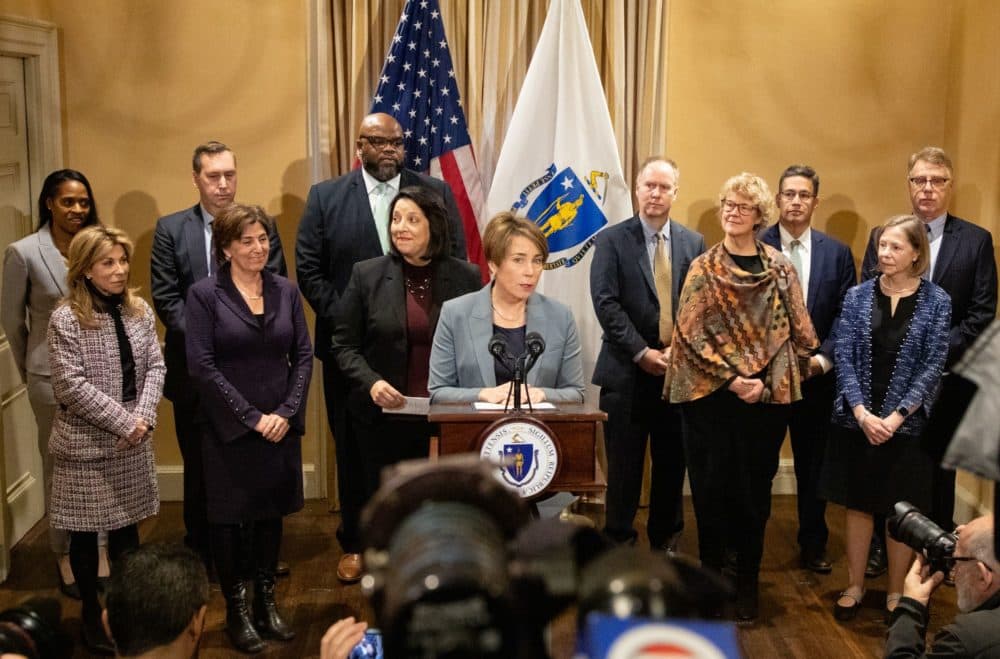Advertisement
'Stabilize, heal and transform': Mass. education secretary announces priorities

Massachusetts' new secretary of education, Patrick Tutwiler, is challenging himself and educators around the state to deeply reflect on the academic and mental health impacts of the COVID-19 pandemic.
That reflection will enable state educators to learn from the past and institute bold ideas for re-imagining education, the state's top education advisor said Tuesday in a keynote speech at the 2023 "Condition of Education" annual presentation convened by the Rennie Center for Education Research & Policy, a local think tank.
Tutwiler told an audience of about 300 people at the Omni Parker House Hotel that going forward, his office will operate from a framework: stabilize, heal and transform.
"The use of the words 'stabilize' and 'heal' are deeply intentional," said Tutwiler. "And designed to convey that we are still in a recovery period (from the pandemic). We are not back."
In his first public remarks about his office's priorities since starting in the role two-and-a-half weeks ago, Tutwiler said the state must focus on addressing the growing educator shortage in the K-12 and early education space. In Massachusetts, each child care center is short an average of three staff members.
Tutwiler also promised to work on improving the narrative around what it means to be an educator — from a role that's underpaid and under-respected to a profession that nurtures big ideas and pays a living wage.
He proposed finding more ways to get people interested in the profession as early as high school and giving students real world experience during the school year. He also discussed the need to make educator credentials more affordable, by experimenting with new financial aid programs and expanding partnerships with community colleges.
The education secretary also focused on finding additional mental health supports for students.
"The past two years have really underscored the relationship between well-being and learning," he said.
Tutwiler previously served as senior program officer at the Barr Foundation and was superintendent of Lynn Public Schools. He spoke about growing up with a mother who was an educator and his hopes for seeing the teacher workforce diversify and grow.
Teachers and school leaders regularly share that mental health challenges among students persist, Tutwiler said, even as school buildings are back open for in-person learning. The struggles are evident as students exhibit disruptive behaviors and high rates of absenteeism.
Tutwiler outlined several potential initiatives to transform education in the state. He wants to create deeper partnerships between early educators and K-12 teachers, allowing them to collaborate on foundational literacy skills and kindergarten readiness.
The education secretary also discussed a few ideas around rethinking the traditional structure of high school, including expanding access to vocational programming in the evening hours. He challenged educators to think about ways they can re-design high schools in a way that places student needs first — whether they have to work long hours to support their families, have special learning needs or are new to the country.
"Is [high school] flexible enough to embrace authentic learning opportunities?" Tutwiler asked.
Boston Public Schools superintendent Mary Skipper, who attended the presentation, said several themes of Tutwiler's keynote resonated with her. Skipper said she was glad state officials recognize that the education system is still recovering from the impacts of the pandemic.
She added that she appreciated the renewed attention state officials are placing on bolstering staff.
"It's so right on," said Skipper. "Our educators are the field. It's where the magic happens."
This is the tenth year the Rennie Center has organized a "Condition of Education" conference in the state and plans to release more data points on Thursday.
